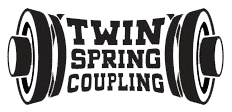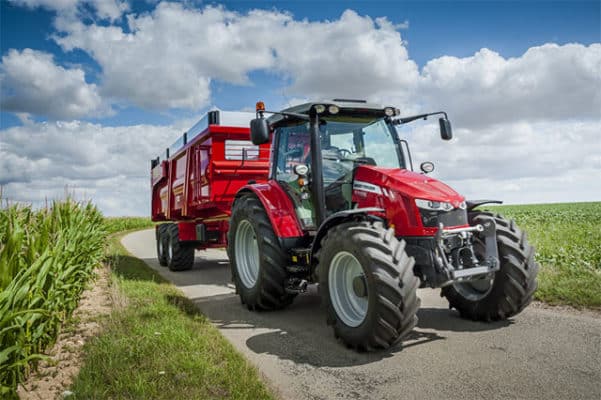Choosing the Right Farming Couplings for Specific Machinery and Tasks
Agriculture is a diverse industry that relies on a wide range of specialized equipment to handle the various stages of crop production, from land preparation to harvesting and processing. At the heart of this equipment are mechanical couplings, which play a crucial role in transmitting power and enabling the smooth operation of these machines. As an OEM, it is essential to understand the unique challenges and requirements of the agricultural sector to ensure that the couplings used in your equipment are optimized for performance, reliability, and efficiency.
The Diverse Landscape of Agricultural Equipment
The agricultural industry encompasses a vast array of equipment, each designed to address specific needs and challenges. From tractors and combines to sprayers and irrigation systems, each piece of machinery has its own unique set of requirements when it comes to mechanical couplings. [1]
For instance, a tractor may need a coupling that can withstand the high torque and vibrations encountered during plowing or hauling heavy loads, while a harvester may require a coupling that can handle the abrasive environment and prevent contamination of the harvested crops. Similarly, equipment used for specialty crops, such as orchards or vineyards, may have different coupling needs to accommodate their specific operating conditions.
Key Considerations for Choosing Agricultural Couplings
When selecting mechanical couplings for your agricultural equipment, there are several critical factors to consider:
Durability and Reliability
Agricultural equipment is often subjected to harsh operating conditions, including exposure to extreme temperatures, moisture, dust, and abrasive materials. Couplings must be designed to withstand these challenges and maintain their integrity over extended periods of use, minimizing the risk of costly downtime and repairs. [1]
Maintenance Requirements
Reducing maintenance requirements is a key priority for agricultural OEMs, as it helps to maximize the uptime and productivity of their equipment. Self-lubricating couplings, such as those made from advanced polymer materials, can significantly reduce the need for regular lubrication and maintenance, saving time and resources for farmers and operators. [1]
Contamination Prevention
Many agricultural applications, such as harvesting and processing, require strict cleanliness standards to prevent contamination of the harvested crops. Couplings must be designed to prevent the leakage of lubricants or other contaminants, ensuring the integrity of the final product. [1]
Efficiency and Power Transmission
The efficiency of power transmission is crucial in agricultural equipment, as it directly impacts the overall productivity and fuel consumption of the machinery. Couplings must be able to transmit power effectively, with minimal energy losses, to optimize the performance of the equipment. [1]
Versatility and Compatibility
Agricultural equipment often needs to be adaptable, allowing for the use of various attachments and implements. Couplings that are compatible with a wide range of components and can be easily integrated into different machine configurations can provide greater flexibility and ease of use for farmers and operators. [2][3][4][5]
Coupling Solutions for Specific Agricultural Applications
To address the diverse needs of the agricultural industry, OEMs can choose from a variety of coupling solutions, each tailored to specific equipment and applications.
Tractors and Implements
Tractors are the workhorses of the agricultural industry, often used to power a wide range of implements, such as plows, harrows, and sprayers. For these applications, couplings must be able to handle high torque loads, vibrations, and the abrasive environment. Universal joints, flexible couplings, and spline couplings are commonly used to connect tractors to their implements. [4][5]
Harvesters and Processing Equipment
Harvesting and processing equipment, such as combines, balers, and threshers, require couplings that can withstand the harsh conditions of the field, including exposure to dust, debris, and moisture. Self-lubricating couplings made from durable polymer materials can help to minimize maintenance requirements and prevent contamination of the harvested crops. [1]
Specialty Crop Equipment
Equipment used for specialty crops, such as orchards, vineyards, and vegetable farms, may have unique coupling requirements to accommodate their specific operating environments. For example, couplings used in orchards may need to be designed to withstand the impact of low-hanging branches, while those used in vineyards may need to be resistant to the corrosive effects of chemicals used in grape production. [1]
Irrigation and Spraying Systems
Irrigation and spraying equipment, such as pivot irrigators and boom sprayers, often require couplings that can handle the high pressures and flow rates associated with these applications. Quick-connect couplings, which allow for easy attachment and detachment of hoses and components, can be particularly useful in these scenarios. [2][3]
Optimizing Coupling Performance through Innovative Design
As an OEM, you can leverage the latest advancements in coupling technology to enhance the performance and reliability of your agricultural equipment. Some innovative design approaches include:
Self-Lubricating Polymer Couplings
Couplings made from advanced polymer materials, such as those offered by TriStar, can provide a range of benefits for agricultural equipment. These self-lubricating components can help to reduce maintenance requirements, prevent contamination, and improve overall efficiency by minimizing energy losses during power transmission. [1]
Modular and Customizable Designs
Coupling solutions that offer modular or customizable designs can provide greater flexibility and adaptability for agricultural equipment. This allows OEMs to tailor the couplings to the specific needs of their machines, ensuring optimal performance and compatibility. [2][3][4][5]
Integrated Diagnostic Capabilities
Incorporating diagnostic features, such as sensors and monitoring systems, into couplings can help to provide real-time data on the condition of the components, enabling predictive maintenance and reducing the risk of unexpected failures. [2]
Corrosion and Abrasion Resistance
Couplings designed with materials and coatings that are resistant to corrosion and abrasion can better withstand the harsh environments encountered in agricultural applications, extending the lifespan of the equipment and reducing the need for costly repairs. [1]
Choosing the Right Farming Couplings for Specific Machinery and Tasks : Conclusion
Choosing the right mechanical couplings for your agricultural equipment is a critical decision that can have a significant impact on the performance, reliability, and efficiency of your machines. By understanding the unique challenges and requirements of the agricultural industry, and leveraging the latest advancements in coupling technology, OEMs can ensure that their equipment is optimized for the demanding conditions of the field. Whether it’s a tractor, harvester, or specialty crop equipment, the right coupling solution can help to maximize the productivity and profitability of your agricultural machinery.
Citations:
[1] https://www.tstar.com/agriculture-overview
[2] https://www.parker.com/literature/Quick%20Coupling/Catalog3900%20Pioneer%20Quick%20Coupling%20Products%20%5Bcomplete%5D2012.pdf
[3] https://www.new-line.com/fittings/quick-connects-for-hydraulics-high-pressure
[4] https://twinspringcoupling.com/tsc300-ag/
[5] https://twinspringcoupling.com/tsc300-mining-couplings/

